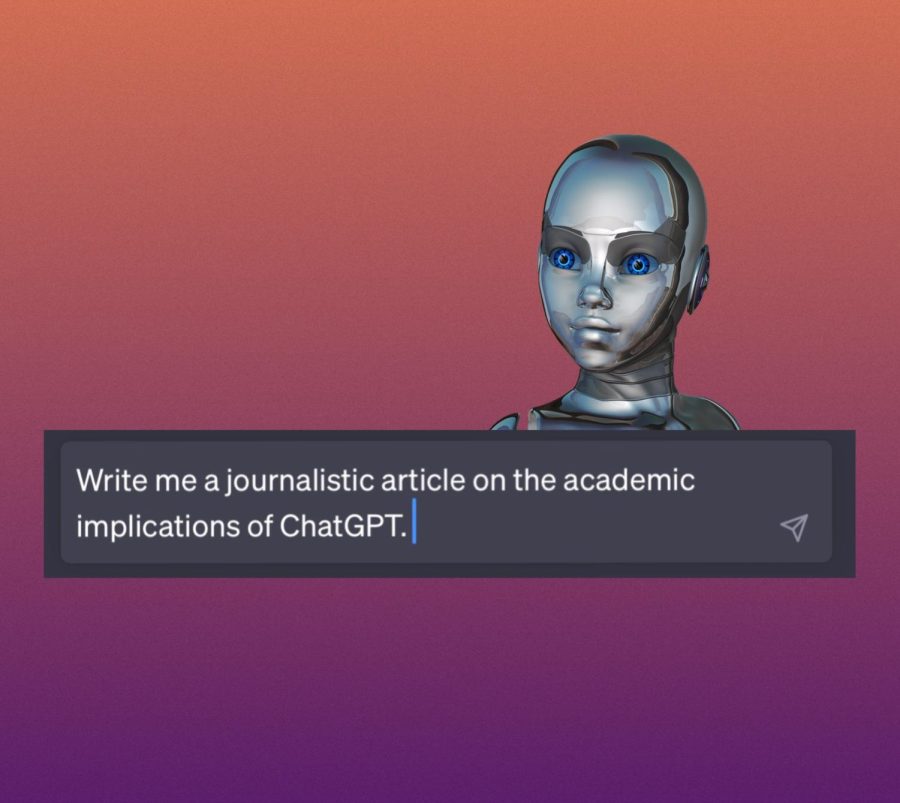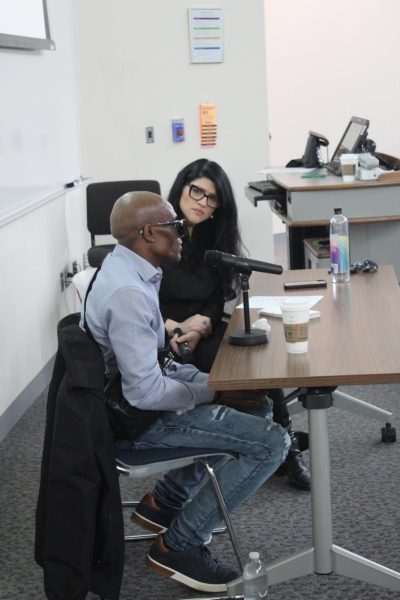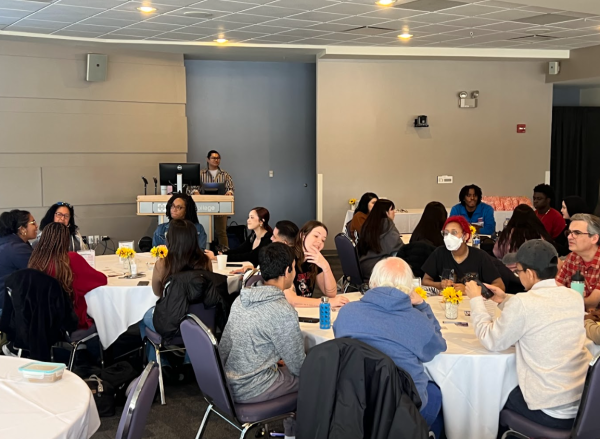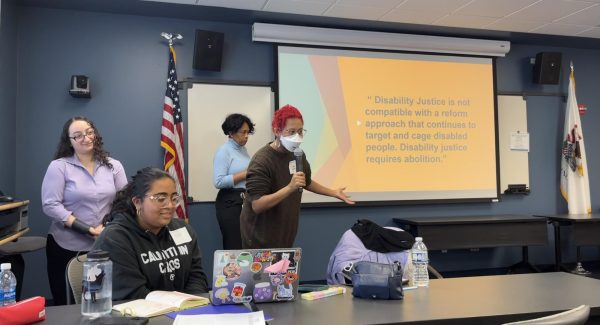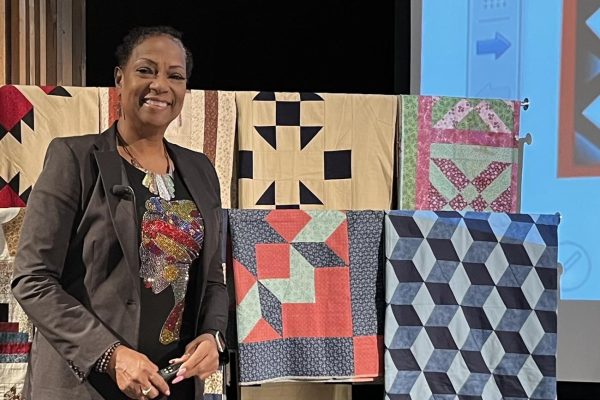Honors Program hosts panel to discuss ChatGPT, educational implications of new AI
ChatGPT is the new online artificial intelligence model taking academia by storm. As the program grows in popularity, it sparks more and more controversy. The burning question at the center of it all: how will ChatGPT change the world of education as we know it?
On April 20, 2023, the Honors Program at Harper College held a discussion panel on that very question. As students filed in, discussion leader and panelist Dr. Rebecca Scott gave ChatGPT a prompt: “Write me an introduction for a panel discussion on the educational impact of ChatGPT.” Over the next few seconds, everyone sat and watched as ChatGPT generated the following response:
Ladies and gentlemen, welcome to our panel discussion on the educational impact of ChatGPT, the revolutionary language model trained by OpenAI. As we gather today, we find ourselves at the forefront of a technological advancement that is transforming the way we learn and acquire knowledge. With its ability to comprehend and generate human-like responses, ChatGPT has emerged as a powerful tool in education, providing students and teachers alike with new opportunities for learning, collaboration, and innovation. In this panel, we will delve into the potential of ChatGPT to shape the future of education, explore its advantages and limitations, and discuss its impact on teaching and learning. Our distinguished panel of experts will share their insights, experiences, and visions for the integration of ChatGPT in education. Let’s begin this exciting conversation and discover the educational possibilities that ChatGPT brings.
A wide variety of panelists participated in the discussion: Varshitha Akella (Student, Honors President), Anthony Behery (Honors Student), David Lavan (Associate Professor in Engineering), Mike Vanlandingham (Student Conduct Officer and Outreach Coordinator), Jennifer Lau-Bond (Coordinator of Library Instruction) and Dr. Rebecca Scott (Associate Professor of Philosophy).
The panelists discussed ChatGPT’s proficiencies (or lack thereof) in topics like math and coding as well as writing composition. They also considered the ethical and academic implications of the new educational phenomenon.
A major theme of the discussion was that no AI, including ChatGPT, is capable of producing original thought. According to Varshitha Akella, a student in Harper’s esteemed Engineering Pathways program, this includes coding. In any attempt to create original code with ChatGPT, she says, the results will be “riddled with errors.”
However, Akella believes ChatGPT is quite efficient when it comes to programming or refining existing code. When it comes to arithmetic, not so much.
Its mathematical calculations are “absolutely horrible,” says Akella.
Honors student Anthony Behery elaborated, explaining the mechanics of the program.
“It’s not a calculator,” says Behery. “It’s an LLM– which is a Large Language Model.”
An LLM, he explains, scrapes massive amounts of data from the internet and uses its collective knowledge to provide you with the answer that has the highest probability of being correct.
When you enter an input, an LLM will analyze that input by breaking it up into “tokens,” which are basic units of text or code that an LLM AI uses to process and generate language. Tokens can be characters, words, subwords or other segments of text or code.
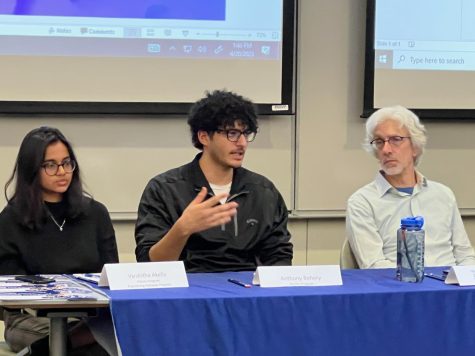
In other words, explains Dr. Rebecca Scott, it’s not generating anything new: instead, ChatGPT is giving you the next “token” someone would be likely to use. In terms of ChatGPT’s sociological effects, Dr. Scott expressed concern with the nature of the program.
“Thinking, I hope, is not just about generating the next most likely word,” says Scott, a member of the philosophy department. “I don’t think that thought is algorithmic. I think that when we say things, when we’re expressing things, we’re a person saying something to someone else in a social context. […] I worry about the lack of difference in perspective and the flattening of thought that can happen when we’re generating supposedly new ideas just by averaging things that already exist.”
When it comes to citing and providing resources, Professor Jennifer Lau-Bond argues that humans remain superior, though ChatGPT could be helpful in providing “research assistance,” especially when it comes to generating ideas early on in the research process.
“You would get far better resources by 10 minutes at the library with a librarian than you will from 30 seconds in ChatGPT,” Lau-Bond said. “You make that calculation, but I would say 10 minutes is not a lot of time to invest to get better help.”
As far as ChatGPT’s disciplinary implications, student conduct officer Mike Vanlandingham says he hopes to see updated policies at Harper College in the next year.
“Something that Harper does really well is that we’re regularly reviewing all of our policies,” Vanlandingham said. “So I think it’s something that has been very much in the forefront of what we’re looking at.”
When it comes to judgments on plagiarism, Vanlandigham explains that Harper College has a standard of “more likely than not.” If a student were accused of plagiarism, they would need to showcase their sources and writing process. The decision is made on whether it is more likely than not that a student plagiarized their work according to certain criteria.
The implications of ChatGPT are obvious when it comes to students looking for an easy way to cut corners, but the full impact of AI on the future of education isn’t so clear just yet.
“I think it’s a mistake to think about it where it is now,” engineering professor David Lavan said. “Whatever it can do today, what it’s going to be able to do tomorrow and the next day: that change is coming fast. All of these sort of limitations that we’re talking about, I think they’re temporary. It’s going to be able to write at a much higher level. It’s going to get better at citing sources. It’s going to get better at answering technical questions. So I think we really need to be thinking long view, and think, how are we gonna be dealing with this–dare I say, revolution–in two, three, four, five years.”
Honors student Akash Vyas, an audience member, looks forward to those advancements.
“I really believe this is very important to educate students on AI and what ChatGPT is,” Vyas said. “It’s a great opportunity for the education system as a whole to change its foundation on what we quiz people on, how we test students, and I really believe that this could be a big thing to help students in the long term.”
Other students from the audience have a slightly bleaker outlook.
“I think we should all panic,” deadpanned C Dendler. “They’re coming for our jobs. They’re taking away the teachers, they’re taking away the librarians, it’s gonna be a mess. We’re headed for extinction.”


